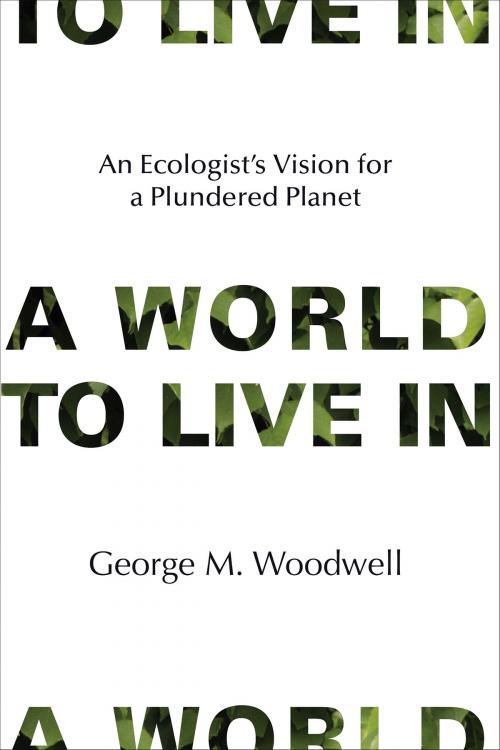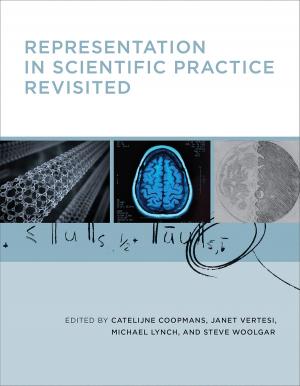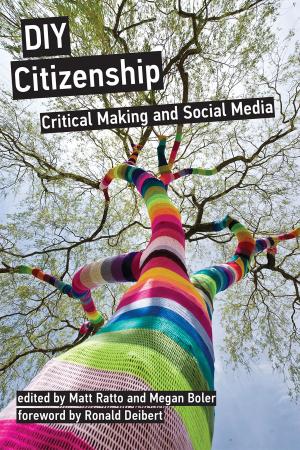A World to Live In
An Ecologist's Vision for a Plundered Planet
Nonfiction, Science & Nature, Science, Biological Sciences, Environmental Science, Nature, Environment, Environmental Conservation & Protection| Author: | George M. Woodwell | ISBN: | 9780262333696 |
| Publisher: | The MIT Press | Publication: | February 26, 2016 |
| Imprint: | The MIT Press | Language: | English |
| Author: | George M. Woodwell |
| ISBN: | 9780262333696 |
| Publisher: | The MIT Press |
| Publication: | February 26, 2016 |
| Imprint: | The MIT Press |
| Language: | English |
A scientist makes a powerful case that preservation of the integrity of the biosphere is a necessity and an inviolable human right.
A century of industrial development is the briefest of moments in the half billion years of the earth's evolution. And yet our current era has brought greater changes to the earth than any period in human history. The biosphere, the globe's life-giving envelope of air and climate, has been changed irreparably. In A World to Live In, the distinguished ecologist George Woodwell shows that the biosphere is now a global human protectorate and that its integrity of structure and function are tied closely to the human future.
The earth is a living system, Woodwell explains, and its stability is threatened by human disruption. Industry dumps its waste globally and makes a profit from it, invading the global commons; corporate interests overpower weak or nonexistent governmental protection to plunder the planet. The fossil fuels industry offers the most dramatic example of environmental destruction, disseminating the heat-trapping gases that are now warming the earth and changing the climate forever. The assumption that we can continue to use fossil fuels and “adapt” to climate disruption, Woodwell argues, is a ticket to catastrophe.
But Woodwell points the way toward a solution. We must respect the full range of life on earth—not species alone, but their natural communities of plant and animal life that have built, and still maintain, the biosphere. We must recognize that the earth's living systems are our heritage and that the preservation of the integrity of a finite biosphere is a necessity and an inviolable human right.
A scientist makes a powerful case that preservation of the integrity of the biosphere is a necessity and an inviolable human right.
A century of industrial development is the briefest of moments in the half billion years of the earth's evolution. And yet our current era has brought greater changes to the earth than any period in human history. The biosphere, the globe's life-giving envelope of air and climate, has been changed irreparably. In A World to Live In, the distinguished ecologist George Woodwell shows that the biosphere is now a global human protectorate and that its integrity of structure and function are tied closely to the human future.
The earth is a living system, Woodwell explains, and its stability is threatened by human disruption. Industry dumps its waste globally and makes a profit from it, invading the global commons; corporate interests overpower weak or nonexistent governmental protection to plunder the planet. The fossil fuels industry offers the most dramatic example of environmental destruction, disseminating the heat-trapping gases that are now warming the earth and changing the climate forever. The assumption that we can continue to use fossil fuels and “adapt” to climate disruption, Woodwell argues, is a ticket to catastrophe.
But Woodwell points the way toward a solution. We must respect the full range of life on earth—not species alone, but their natural communities of plant and animal life that have built, and still maintain, the biosphere. We must recognize that the earth's living systems are our heritage and that the preservation of the integrity of a finite biosphere is a necessity and an inviolable human right.















